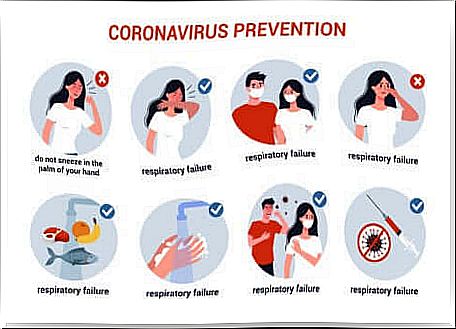Coronavirus: Why Close Educational Institutions?

By now, almost everyone knows what the coronavirus is. Because right now the news is hardly about anything else. Corresponding information can be found everywhere. But sometimes this can also cause fear and confusion in people. Never before has a virus had such an impact on a social and economic level. And in fact , the WHO has now declared the SARS-CoV-2 coronavirus a pandemic.
Of course, this is not the first time that there has been a virus epidemic worldwide. For example, Ebola or bird flu can be named. But the number of deaths from the coronavirus or COVID-19 continues to rise steadily. Older people are particularly affected, and especially those who already have other health problems. It seems that the number of cases is steadily increasing and people are feeling fear and worry.
How long will this pandemic last?
It is not yet possible to say how long the problem will last. Nor can any statements be made about whether the coronavirus is one of the types of virus that depends more on the seasons and will therefore occur again more frequently with the start of the colder season.
It is also not known whether the virus will eventually mutate or whether it will develop into an even more aggressive virus. With so many unanswered questions, there are of course many people who would prefer to follow the relevant information and related data in real time.
Some experts suggest that the sun and high temperatures are likely to reduce the aggressiveness of the virus. Because in the warm season on the one hand there are not so many people gathering in closed rooms and on the other hand the virus seems to have difficulties reproducing at high temperatures.

What is certain is that many people will become infected and many will experience symptoms. But with others, the infection will be symptom-free. The good news is that those who contract the virus and then recover are apparently immune to it. However, the relevant data still need to be investigated further.
Reduction of social contacts to avoid infections with the coronavirus
The health authorities recommend reducing social contacts. The aim is to reduce the risk of infection and prevent new infections from occurring on a large scale.
Because if there are infections, it is better that they occur gradually so that health services do not collapse. Because the effects of the pandemic are already noticeable in all health facilities.
Seriously ill patients must be treated as efficiently as possible in medical centers. Whereas patients with less severe illnesses should be treated at home.
In this way, you promise yourself that there will be no excessive demands in hospitals and emergency services. Above all, the less contact between people and the greater the distance between individual groups, the lower the risk.
So far, Italy and China have severely restricted the freedom of movement of their citizens. In doing so, they want to prevent the virus from spreading even faster and more widely. In addition , all educational institutions in various cities in Spain were closed for two weeks. This applies to day-care centers, schools, and universities, among others
Why are schools and universities being closed because of the coronavirus?
The decision to close educational institutions because of the coronavirus has several reasons. In this way, for example, fewer parents or other people looking after the children are on the go to take the little ones to school. This reduces social contact. And with it the risk of a possible infection.
And just as schools and universities are closed, events are also canceled. For example concerts, sports competitions or conferences. Because at such events there are large crowds and you want to avoid them.
In addition, there are increasing restrictions on public transport and, in some cases, even suspension. For example, on flights between the USA and Europe. It is also recommended in some places to cancel events with more than 10 people in closed rooms.

Special risk groups
The coronavirus illness often only resembles a simple cold or flu. But there are certain risk groups in the population. And in these, COVID-19 can lead to severe and life-threatening pneumonia. These include:
- Elderly people
- People with chronic diseases
- People who suffer from cancer
- Patients taking immunosuppressive drugs
- Pregnant women
It’s important that everyone does their part to make things easier for everyone. So companies should make it possible to work from home, for example. Or organize staggered working hours. Because in this way you can achieve that fewer people meet. And that in turn can reduce the risk of the coronavirus spreading.
If you have any symptoms of the flu, you shouldn’t go to work. Stay at home. Because that’s not how you infect others. You should also speak to your doctor. If an employee is diagnosed with SARS-CoV-2, they should stay home and notify their employer and family immediately.
In addition, the following things are very important: You should not frighten your children. You shouldn’t panic yourself either and of course you should follow the instructions recommended by the professionals for maintaining basic hygiene. So z. B. Wash your hands thoroughly or sneeze or cough in the crook of your arm.









